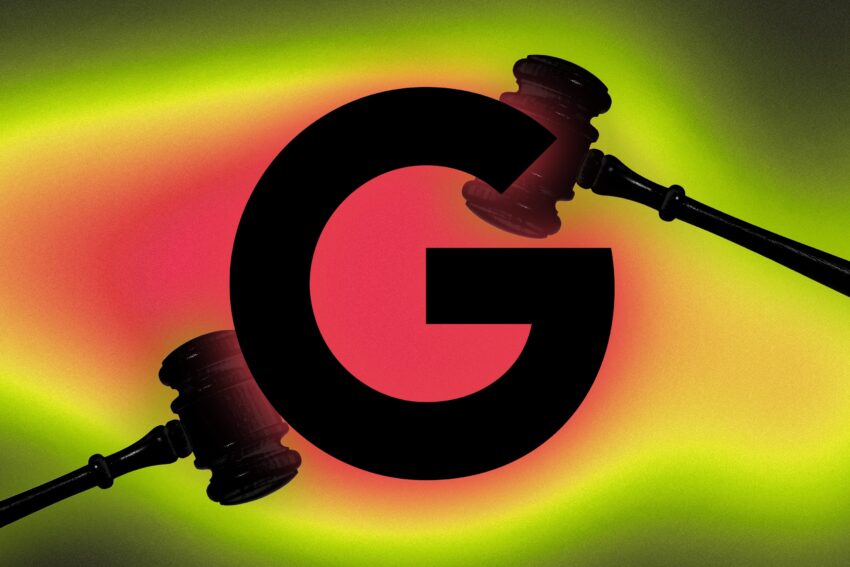
judge wants to fix google s ad Judge Leonie Brinkema is poised to make a significant decision regarding Google’s ad tech monopoly, with implications that could reshape the digital advertising landscape.
judge wants to fix google s ad
Background of the Case
The legal battle between the U.S. Department of Justice (DOJ) and Google has been ongoing, centering on allegations that Google maintains an illegal monopoly in the digital advertising sector. This case is part of a broader initiative by the DOJ to rein in the power of major tech companies, which have faced increasing scrutiny over their market dominance and business practices.
In 2020, the DOJ filed a lawsuit against Google, claiming that the company had unlawfully tied its advertising products together, thereby stifling competition and harming advertisers and publishers alike. The DOJ’s primary contention is that Google’s practices have created barriers for competitors, limiting choices for both advertisers and publishers. This lawsuit is particularly critical as it addresses the complexities of the digital advertising ecosystem, where Google plays a pivotal role.
Judge Brinkema’s Considerations
During the recent closing arguments, Judge Brinkema expressed her understanding of the urgency surrounding the case. As reported by Reuters, she stated that “time is of the essence,” highlighting the need for a timely resolution to the ongoing issues in the ad tech market. Brinkema’s ruling is expected to be issued next year, but the implications of her decision could be felt almost immediately.
Brinkema has previously ruled that Google holds an illegal monopoly in two key ad tech markets. She has also determined that the company has unlawfully tied together two of its tools, which has raised significant concerns about competitive practices in the industry. The judge’s awareness of the potential for an appeal by Google adds another layer of complexity to her decision-making process. She noted that the DOJ’s proposed remedies “most likely would not be as easily enforceable while an appeal is pending,” according to Reuters.
Proposed Remedies
The DOJ is advocating for a more drastic approach to remedy the situation, which includes forcing Google to sell its AdX exchange. This exchange is a critical component of Google’s ad tech infrastructure, facilitating transactions between advertisers and publishers. Additionally, the DOJ has left open the possibility of requiring the sale of Google’s publisher ad server, further dismantling what they argue is an anti-competitive structure.
In contrast, Google’s defense has argued that only behavioral changes are necessary to address the issues identified by the court. The company contends that it can modify its practices without divesting any of its assets. This argument hinges on the belief that operational adjustments can sufficiently mitigate the competitive concerns raised by the DOJ.
Implications of the Ruling
The implications of Judge Brinkema’s ruling could extend beyond Google and the ad tech market. A decision to break up Google’s ad tech operations could set a precedent for how other tech giants are regulated in the future. If the court sides with the DOJ and mandates significant changes to Google’s business structure, it could embolden regulators to pursue similar actions against other companies in the tech sector.
Moreover, the ruling could have immediate effects on the digital advertising landscape. A forced divestiture of Google’s AdX exchange could lead to increased competition, potentially benefiting advertisers and publishers by providing them with more options. However, it could also create uncertainty in the market as stakeholders adjust to a new competitive environment.
Stakeholder Reactions
The reactions from various stakeholders have been mixed. Advertisers and publishers have expressed support for the DOJ’s efforts, arguing that Google’s dominance has limited their choices and driven up costs. Many in the industry believe that increased competition would lead to better outcomes for all parties involved.
On the other hand, Google’s supporters argue that the company’s size and market position allow it to provide valuable services that benefit advertisers and publishers. They contend that breaking up the company could disrupt the efficiency and effectiveness of the digital advertising ecosystem, ultimately harming the very stakeholders the DOJ aims to protect.
Comparative Context: The Meta Case
Timing has played a crucial role in similar legal battles, as evidenced by a recent case involving Meta (formerly Facebook). In that instance, a judge ruled against the government’s case accusing Meta of being an illegal monopolist, citing the rapid growth of TikTok as a significant factor. When the case was initially filed in 2020, TikTok was a much smaller competitor, but by the time the trial occurred, it had grown substantially, complicating the government’s argument.
This context underscores the importance of timing in antitrust cases, particularly in the fast-evolving tech landscape. The DOJ’s decision to file the Google ad tech case in the Eastern District of Virginia, known as the “Rocket Docket,” was strategic. This court is known for its expedited processes, allowing for quicker resolutions that can be crucial in a rapidly changing market.
Future of Antitrust Enforcement
The outcome of the Google case may signal a shift in how antitrust enforcement is approached in the tech industry. If the court decides to impose significant changes on Google, it could pave the way for more aggressive regulatory actions against other tech giants. This could lead to a more fragmented digital advertising landscape, with smaller players gaining a foothold in a market that has been dominated by Google for years.
Conversely, if the court sides with Google, it may embolden the company and others in the tech sector to continue their current practices, potentially stifling competition and innovation. The implications of this ruling will likely resonate throughout the industry, influencing how companies operate and how regulators approach antitrust issues in the future.
Conclusion
As Judge Brinkema prepares to issue her ruling, the stakes are high for Google, the DOJ, and the broader digital advertising ecosystem. The decision could reshape the competitive landscape, impacting how advertisers and publishers interact and how tech giants are regulated. With the potential for an appeal and the complexities of the case, the coming months will be critical in determining the future of ad tech and antitrust enforcement in the United States.
Source: Original report
Was this helpful?
Last Modified: November 22, 2025 at 4:39 am
5 views















